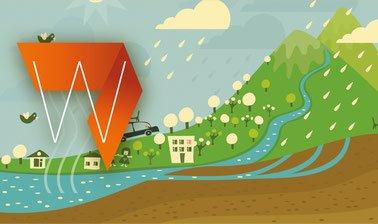MOOC List is learner-supported. When you buy through links on our site, we may earn an affiliate commission.

MOOC List is learner-supported. When you buy through links on our site, we may earn an affiliate commission.
Explore the links between biology, chemistry and soil science that lead to what people often take for granted: good quality water.
This course is an introduction to environmental sciences. Using only basic knowledge from inorganic chemistry and biology, the course will lead you to an exploration of every day issues around the world. We will tackle some basic questions: Why did the “dust bowl” or the Assouan River dam have so profound an impact on soil fertility? How do we explain the mass poisoning affecting tens of millions of people in SE Asian deltas? Why is nitrate, but not potassium, a pollutant linked to agriculture even through NPK fertilizers are used? Besides plants, are there other photosynthetic organisms? Can we reconstruct water quality from centuries ago although no water samples remain? Are biofuel or coal gasification plants viable energy solutions? Why does deforestation result in loss of fertility in the Amazon basin but not in temperate Europe? What critical water issues will be raised by megacities, which will soon represent 2/3 of the world’s population? How has the relationship between humans and water changed over the centuries?
The class will consist of lecture videos, which are between 10 and 15 minutes in length. Every week, you will have related quiz questions and exercises. These optional assignments will not be graded and the solution will be provided the week after the assignment is posted. At the end of weeks 4 & 10, there will be a graded MCQ (each counting for 15% of the final grade). There will also be two peer-graded homework assignments, together with two MCQ, at the end of week 7 and week 13 as mid term and final exams.
What you'll learn
- Major microbial metabolisms
- Aquatic chemistry equilibria
- Biogeochemical cycling
- Natural water treatment processes
Syllabus
1. Atmosphere and rainwater
2. Photosynthesis and C fixation
3. C cycling and C storage
4. OM and methane
5. Weathering and soil formation
6. Surface chemistry
7. Anoxic environments
8. Nitrogen Cycle
9. Heavy metals and their bioavailability
10. Mines and contamination
11. Surface water quality
12. Urban Metabolism
MOOC List is learner-supported. When you buy through links on our site, we may earn an affiliate commission.
MOOC List is learner-supported. When you buy through links on our site, we may earn an affiliate commission.
